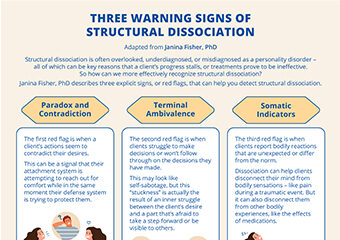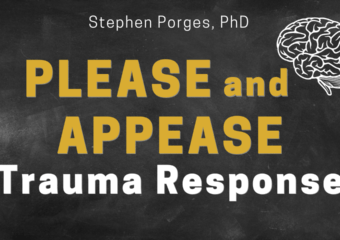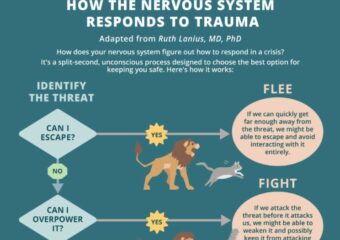Working with structural dissociation can be critical in the treatment of severe or prolonged trauma . . . . . . but it’s often difficult to detect. According to Janina Fisher, PhD, structural dissociation is commonly underdiagnosed, or it’s misdiagnosed as a personality disorder. And when left undetected, it could lead to ineffective treatments that […]
A Three-Step Approach to Treating Trauma-Related Dissociation, with Thema Bryant, PhD
Dissociation can be tricky to spot. On top of that, it can look awfully similar to freeze or shutdown. And to complicate things further, a patient might dissociate when they’re in either one of those trauma responses. But being able to detect when a client is dissociating is critical for providing effective treatment. So in […]
What’s Happening in the Nervous System of Patients Who “Please and Appease” (or Fawn) in Response to Trauma? With Stephen Porges, PhD
You’ve probably heard of fight, flight, and even the freeze response to trauma. But there are some newer defense responses – ones that experts have only recently begun to name and understand – that are critical to our clinical work. One of those defense responses is “please and appease.” You may have also heard expert […]
[Infographic] – How the Nervous System Responds to Trauma
It can often be difficult for trauma survivors to understand how or why they reacted a certain way during a traumatic experience. Instead of seeing their trauma response as the result of a split-second, unconscious decision made by their nervous system, your client may blame themself for not reacting differently. This can be especially true […]
Understanding Trauma Triggers, with Stephen Porges, PhD
In the aftermath of trauma, some clients struggle to feel a sense of connection to their bodies. And when clients can’t properly interpret the sensations or messages that the body is sending to the brain, it can be very difficult for them to get a handle on their triggers. So in the video below, Stephen […]




